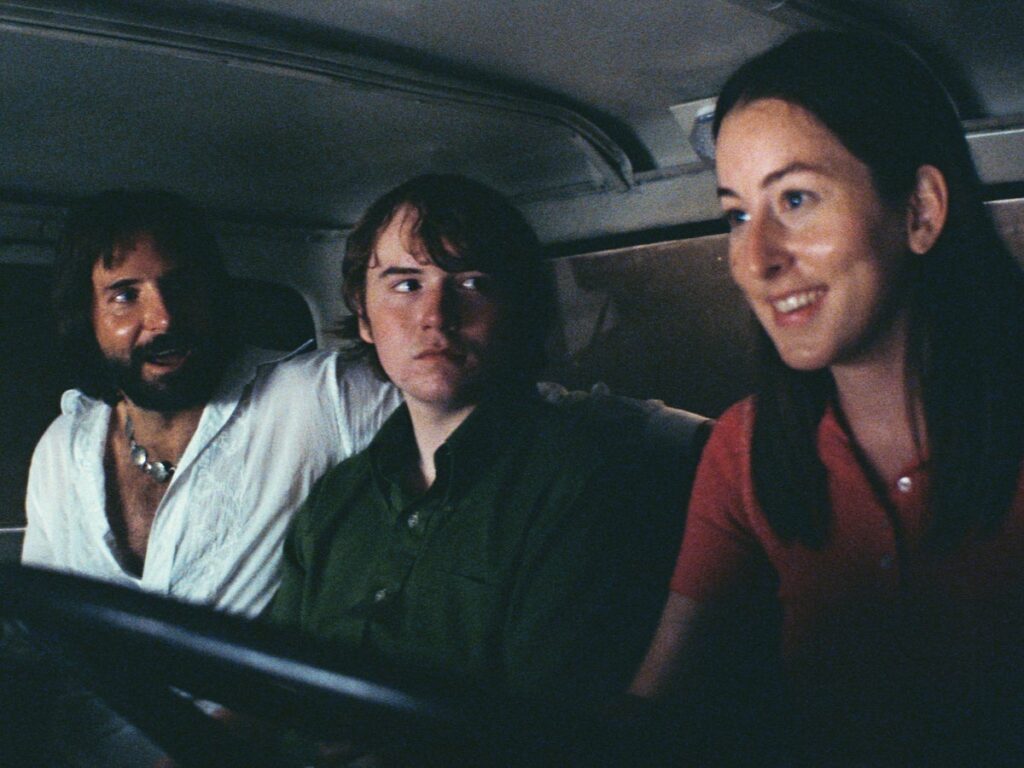In recent years, a subgenre has emerged as a particular favourite of ageing auteurs looking to reminisce and pay homage to their youth. The ensuing wave of retrospective, semi-autobiographical, coming-of-age dramas sweeping cinemas has, luckily for filmmakers, also proven popular with critics and audiences – Belfast and The Hand of God are recent examples, but few better encapsulate the trend than Paul Thomas Anderson’s venture into 70s San Fernando Valley, Licorice Pizza.
Arguably boasting two of the best debut performances put to film this century, Licorice Pizza documents the intertwining lives of Gary Valentine (Cooper Hoffman), a 15-year-old child actor and entrepreneur (yes, you read that right) and Alana Kane (Alana Haim), a 25-year-old in a dead-end job as a photographer’s assistant, as their search for purpose and meaning seems to bring them back to each other time after time.

Gary and Alana’s relationship is a tug of war; the perpetually shifting dynamics between Gary’s unabashed, terrier-like optimism and Alana’s unassuming confidence provides the film’s central conflict. From the very first scene – a mesmerising long take in Gary’s high school – the simmering tension is apparent in Alana’s reluctance to accept the young hotshot as her superior. Hoffman’s intriguing clash of self-assured openness and naivety also contributes to this, fixing the character squarely at a crossroads between childhood and adulthood. It’s a contrast that disorients Alana, as she struggles to find which persona to adopt to best respond to his romantic advances. This tension continues throughout, as Alana’s deeply rooted insecurities are alternately exposed and soothed by the boy’s presence. She seems empowered following Gary’s spellbinding, whirlwind life – that is, until his air of superiority becomes aggravating and she retaliates by using her age to assert her authority over him.
Both characters’ burgeoning need for belonging and self-identity arises with their realisation of the world’s true size. When the other can’t satiate those needs, Licorice Pizza sees them turn to other sources – in 1970s California, that means showbusiness. It’s a moment in which Anderson’s genius truly shines through, as he uses his industry status to cast revered Hollywood actors as celebrity caricatures, parading around 70s L.A. in all their forcefully ostentatious glory. To this end, Bradley Cooper, Tom Waits and Sean Penn’s larger-than-life acts test the limits of Alana’s resistance to the allure of wealth and delusion; their introduction serves to scrutinise the depths of the protagonists’ relationship to one another.

Fittingly, given its namesake (a former chain of record shops in California), Licorice Pizza’s soundtrack is unrelenting – an eclectic collection of songs traversing genre and era, its variety and scope serving as a reflection of the many disparate influences from which Gary and Alana draw upon to construct their identities.
However, what the soundtrack (and the film) offers above all is a refreshingly realistic and enchanting depiction of the spontaneity of youth. It sometimes feels like the song choices are at odds with the mood or narrative trajectory, but that contrast encapsulates the gleeful carelessness of Licorice Pizza. In line with a potentially terrifying and distressing ordeal for Gary, a steady, almost casual and rumbling tune plays, ostensibly out of place; but it works to capture Gary’s unrelenting optimism, an ode to his belief that his next lucky turn can only be around the corner. After all, with a life in a state of such ceaseless change, how can anything ever be permanent?
Licorice Pizza is really an endearing tribute to life’s beautiful uncertainty: the songs don’t always ‘line up’ with the moments; Gary and Alana’s ever-changing personalities don’t always satisfy the other’s need for purpose and meaning… but such is the journey to maturity. Their blissfully naïve belief that life is but a series of instinctive jerks is magically delivered by Anderson’s latest.
Licorice Pizza releases on Blu-ray and DVD from May 17th.
